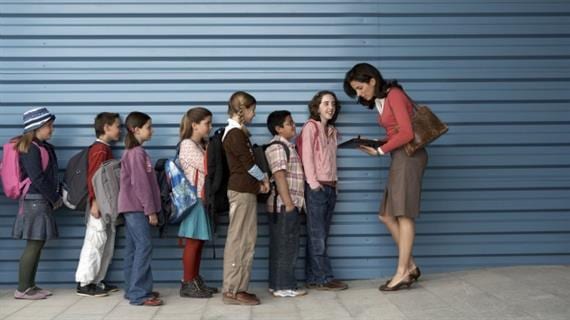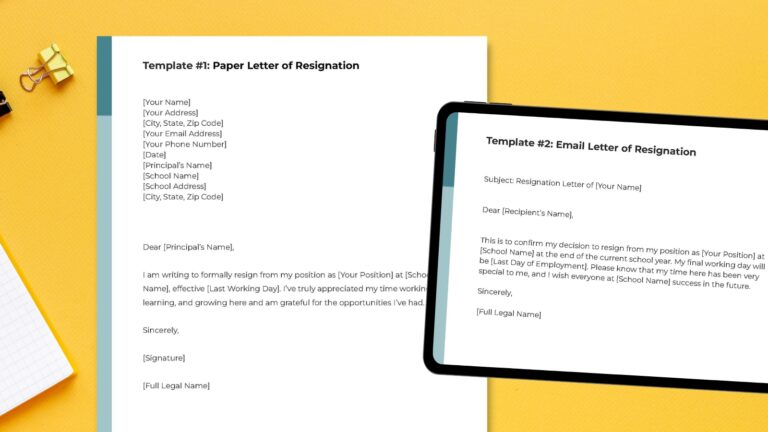I spent my first five years of teaching at a middle school, imparting knowledge to seventh and eighth graders whom I spent equal amounts of time worrying about, laughing with, and redirecting. This year, I made the switch to a role where I teach several different preps from fourth to eighth grades and occasionally work with second graders.
This is what I’ve learned switching grades.
I relearned how significant the transition from elementary to middle school is.
Going from elementary to middle school is, in a lot of ways, like going from a balance beam to a tightrope: The stakes are higher, there’s a lot less support, it can be anxiety-inducing, but it’s also fun*! This year I also realized just how many transitions happen between elementary and middle. Going from two, sometimes three, teachers to seven or eight. Not having a signed homework folder. No twice-a-year parent conferences. Having teachers that are responsible for up to 120 students instead of 45. I totally understand now why sixth grade teachers (and any “first” grade of a school, really) are on Meltdown Duty pretty much the entire first semester.
It reminded me just how much puberty wrecks your life.
Puberty is the single weirdest, most destructive force in nature. Alliances shift. Relationships change. Brains get rewired. Let me be clear: I adore my middle school students with the fire of a thousand suns. I think it’s a fun challenge that I have to work for their trust and cooperation. I’ve developed a tough skin to their sass and emotional instability because I love meeting them in the scary but exciting middle ground between childhood and adulthood. I love that they show their love to me in an understated way via bizarre jokes and YouTube videos. And then … I started teaching elementary. All I did was walk in and they started doing things like APPLAUD when they found out I was going to read to them, or spontaneously initiate class chants about how much they love me, or come up and hug me on Monday mornings because, “I didn’t see you for two whole days!!.” IS THIS REAL LIFE?! I ask myself about 18 times a day. I had almost come to a point where I thought I didn’t want to have kids, and now teaching elementary has made me want to have 50 of them. Oops.
I should say that, obviously, puberty is not all death and destruction. During puberty, kids start relying on their frontal cortexes (yay, logic!) to process information instead of the fight-or-flight amygdala. And while that transition can sometimes be terrifying (both for the spectator and for the participant), it’s one of the most amazing, gratifying things in the world to watch a child mature and begin to use that frontal cortex to start caring about issues that affect others instead of listening to the “me, me, me!” amygdala.
It gave me a new appreciation for elementary teachers.
Good gracious. Have you ever tried to get a group of young children to walk silently in a line down the hallway on their way back from the cafeteria … ON A FRIDAY?! If it sounds easy, you are either a veteran elementary teacher or you don’t know anything. Also, bulletin boards. In middle school, I put one very basic bulletin board up at the beginning of the year and that was it. Elementary teachers bring their A-game ALL YEAR. I have no idea how they do it. The last one I did took me two hours. And I sweated so much that I wanted to cry but couldn’t because I’d sweated all my tears out.
Elementary teachers, you are my heroes. You understand how formative these early years are, and your patience and creativity is never lost on the little ones (or on me). I love you. Now teach me all your secrets.
It also gave me a new appreciation for middle school teachers.
Maybe it’s socially inappropriate to say that middle school teachers are also my heroes when I am one, but I think the world would agree with me that middle school teachers are a special breed. Nearly every time I tell someone I teach middle school, the response has been something along the lines of, “Yikes!” or “I could never do that,” or “Have you been psychologically evaluated?” And while no teacher will tell you that they do what they do for any kind of perks, I think it’s true that middle school teachers often get overlooked. They’re kind of like the middle child of the teaching world. (But everyone knows the middle child is the most fun.)
It made me love my middle school students more.
Almost every day now, I think about how even the biggest, “baddest” eighth graders I can think of started out as one of these tiny, wide-eyed little elementary nuggets, who ran around on the playground with his arms straight up in the air by his ears the entire duration of recess, or who would get so excited when it was her turn to feed the class pet fish that she’d giggle uncontrollably and need a helper to keep the canister steady. As a middle school teacher, it was easy for me to think of my students simply as middle school students, since that was the only age I’d taught or known them. But now that my perspective is widened, I have a better sense of who they are as humans.
Except when they do things like use my duct tape to tape themselves to chairs when I have a substitute. Then I forget they are humans again.
Have you taught more than one age group of students? What did you notice about that transition?
*I would imagine. I hope I never have to walk on a tightrope.

